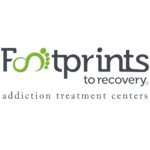If you experience physical symptoms when you stop taking drugs or alcohol, you have a physical dependence. When you have a physical dependence on drugs or alcohol, your brain and body have come to rely on them to function. That’s why when you go without these substances, you experience physical withdrawal symptoms. This is a sign that the central nervous system is trying to rebalance itself and function without drugs or alcohol. Withdrawal symptoms can range from headaches and confusion to vomiting and seizures.
You don’t need to be abusing drugs and alcohol to develop a physical addiction. For example, physicians may prescribe addictive drugs like opioids for:
- Post-surgery care
- Chronic pain
- Pain related to diseases like cancer
Even when taken as prescribed, your brain can develop a physical dependence on these drugs. You may experience withdrawal symptoms when you stop.
In both cases of recreational substance abuse and medical uses of prescription drugs, the onset and intensity of physical withdrawal symptoms depend on:
- How long you’ve been using the substance.
- How much of the substance you use.
- Your physical make-up.
If you have a physical dependence, it’s critical that you undergo alcohol or drug detox under the care of medical professionals. Withdrawing from some drugs like heroin or alcohol on your own can be dangerous, and even deadly without proper care. For example, alcohol withdrawal symptoms can include delirium tremens (DTs) that put you at risk for heart attack and death. Persistent vomiting and diarrhea from heroin withdrawal can cause sodium and electrolyte imbalances that put you at risk for heart failure.
The Difference Between Psychological and Physical Addiction
People with substance use disorders usually struggle with both physical and psychological addiction symptoms. Physical dependence produces uncomfortable and painful body sensations without the substance. Psychological dependence is the emotional and motivational factors that play into the mental desire to use drugs or alcohol. Though there are differences between physical and psychological dependence, they are intertwined and feed off each other. This is one reason why it’s so difficult for people with substance use disorders to quit using drugs or alcohol.
The time it takes to detox from alcohol and drugs is different for everyone, but depending on the drug, uncomfortable physical symptoms usually cease within days or weeks. However, the urges and cravings to use drugs, which are driven by triggering emotions and situations, can last much longer. Those are the psychological effects of drug and alcohol abuse.
Psychological dependence is a part of post-acute withdrawal syndrome (PAWS). These are withdrawal symptoms that can linger for weeks or months after your physical addiction to drugs subsides. Many effects of PAWS result from the central nervous system working to rebalance itself during early recovery from alcohol addiction or drug addiction. Examples of PAWS can include:
- Depression
- Anxiety
- Difficulty sleeping
- Apathy
- Low motivation
- Irritability
- Confusion
This is a critical period in early addiction recovery. The pull to self-medicate the uncomfortable feelings of PAWS with drugs or alcohol can be strong, putting you at high risk of relapse.
How Do You Treat Physical Dependence?
Treating physical dependence to drugs or alcohol begins with medical detox. This takes place under the care of physicians and nurses who make sure you are safe and comfortable during drug detox or alcohol detox. They will monitor your vital signs and comfort and prescribe research-backed medications to ease withdrawal symptoms. In the case of a medical emergency, they can intervene promptly.
Once you have safely rid your body of substances, you may still need medications and therapeutic interventions to deal with lingering physical symptoms. For example, opioid addiction treatment programs may include medication-assisted treatment (MAT). These are prescription drugs that act on your brain’s opioid receptors in ways that help ease physical withdrawal symptoms and reduce intense cravings. MAT is used in combination with behavior therapy and support groups.
Substance abuse treatment programs usually include psychiatric care. While your brain recovers from physical dependence on drugs, antidepressants or anti-anxiety pills may be prescribed as needed. Drug and alcohol addictions impact the reward center of the brain, and it can take time for chemicals to rebalance. This can cause depression and anxiety symptoms.
Some recovery centers also offer chiropractic services, massage therapy, acupuncture, and other pain management services. These types of treatment can be used to:
- Ease physical withdrawal symptoms of alcohol and drug addiction.
- Provide alternative pain management approaches to people in painkiller addiction treatment.
- Address physical discomfort and pain that drug and alcohol abuse was masking and that surfaced after detox.
Drug addiction treatment involves much more than treating physical dependence. Without addressing the reasons why you’ve been abusing drugs or alcohol, you’re likely to relapse. Substance abuse and mental health treatment helps you identify trauma, mental health challenges, relationship struggles, and other situations that often fuel addiction. You’ll start repairing these emotional wounds and learn healthier ways to cope with challenges.
Looking For Help?
Recovery is hard work, but it’s well worth it. If you or a loved one is struggling with addiction, we can help. Footprints to Recovery offers several levels of care, research-based addiction treatment therapies, and comfortable treatment centers where you’ll recover alongside peers who understand what you’re going through.
We offer:
- Medical detox
- Inpatient rehab
- Partial hospitalization program
- Intensive outpatient program
- Outpatient rehab
- Sober-living program
Treatment plans are tailored to your individual needs and preferences and include both traditional and holistic therapies.
We can help you rebuild your life. Call us today.



